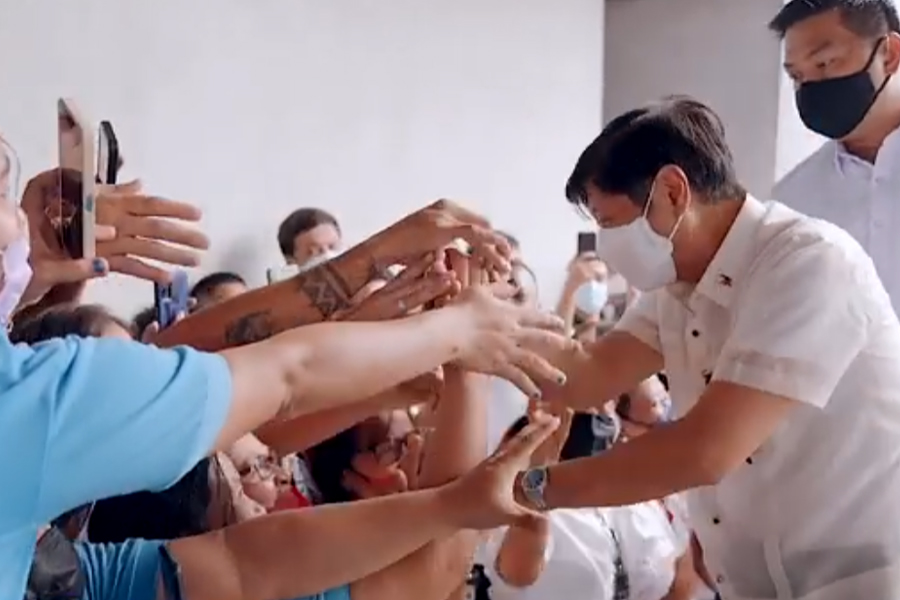Teresa Reyes, a 56-year-old peanut vendor from Cavite, believes that President Ferdinand “Bongbong” Marcos Jr. will perform “very well” during his first 100 days as the country’s chief executive.
“Like his father, he has great plans for the Philippines,” Reyes said in Filipino. “His policies are good. I believe in his aspirations for the country. He will be a great president.”
Reyes’ sentiments mirror the view of the majority of Filipino respondents of the PAHAYAG second quarter survey conducted from 16 to 22 June.
Sixty-eight percent — or seven of 10 Filipinos — said they expect Marcos to perform “well” or “very well” during his first 100 days as president.
At least 14 percent said they expect him to perform “poorly” or “very poorly” while 11 percent said they expect the incoming president to perform “neither poorly nor well” and 7 percent were unsure.
The 1,500 Filipino respondents who participated in the poll were randomly sampled from their national panel of more than 200,000 Filipinos with a sample-wide margin of error is ±3 percent.
Reyes cited Marcos’ swift response to the powerful earthquake that jolted Abra and other Northern Luzon provinces last month.
“He acted quickly when the earthquake hit Abra. He responded and provided assistance swiftly,” Reyes said. “I can see that as early as now, he is quick to help those in need.”
Reyes said she actively campaigned for Marcos. She hung tarpaulins in front of their house and attended campaign rallies in Cavite.
The single mother of two adolescents earns P20 for every sold bottle of peanut butter.
Her 20-year-old daughter has graduated from senior high school and now works as a warehouse assistant in an electronics company.
“Last week, I was able to sell 10 bottles, taking home P200,” she said.
She uses her earnings to go to Mandaluyong City where she gets free medicines for her 21-year-old son who has been diagnosed with bipolar disorder with psychotic features.”
Reyes explained that the National Center for Mental Health (NCMH) in Mandaluyong City provides free medicines for indigent patients.
“If my son misses his medicines, it is impossible for me to go out to sell my products because he goes out of control.
He goes berserk. He is sometimes violent,” she revealed.
It came to a point when Reyes said she had to hide knives and other pointed materials at home.
She’s hoping that the administration will continue to support and strengthen NCMH and other psychiatric institutions to be able to help indigent patients.
“Good thing there is PGH (Philippine General Hospital) which provides free consultations for my son. I cannot afford to have him checked in private hospitals. It would cost me thousands,” she said.
